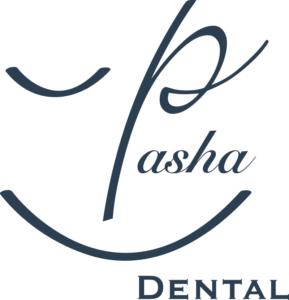General dentistry encompasses a broad range of diseases and disorders of the oral and maxillofacial region. Everyone should see a general dentist for routine oral health examinations, twice-yearly cleanings, and treatment of routine oral health complications, such as minor tooth decay. General dentistry is as much about prevention as it is about treatment. Patients who visit a general dentist can expect professional oral health care, as well as education and advisement about self-care between office visits.
Did you know…
that the American Dental Association recommends that every American visit a general dentist a minimum of one time every six months? Doing so can aid in the detection of decay, oral disease and other dental health problems before the progress and become severe. If you are at risk for certain complications or have a history or periodontal disease and advanced decay, you may need to visit your general dentist on a more frequent basis. Patients who visit their dentist regularly and as recommended are more likely to retain their natural teeth and enjoy a lifetime of good oral health.
Frequently Asked Questions
Do I need to visit a general dentist?
Yes. Even if you are not currently experiencing any symptoms of tooth decay or gum disease, it is important to visit your dentist for a thorough examination and cleaning. Despite daily brushing and flossing, your teeth can still accumulate tartar that can harbor bacteria. These bacteria can lead to gum disease and tooth decay if not professionally removed at your dentist’s office.
What should I expect during my dentist visit?
Cosmetic dentistry can offer a wide range of social and oral hygiene benefits. If you are ashamed of self-conscious about your smile, the simple answer is that you should get cosmetic dentistry to give you a smile you can be proud of. People who are satisfied with their smile, smile more, are perceived as more friendly and genuine, are more successful in the workplace, and live generally happier lives. It sounds almost too good to be true, but a fabulous smile can truly change your life.
In addition to the social benefits that cosmetic dentistry offers, it also offers oral hygiene benefits. For starters, cosmetic dental treatments address problems such as decay and damage. By addressing these problems, it optimizes your oral health to a level where you simply need to maintain it. And, teeth that are properly aligned, as well as free from damage or decay are much easier to keep healthy than teeth that are not.
In the case of missing teeth, cosmetic dentistry replaces missing teeth to keep your mouth functioning properly. If missing teeth are not replaced, they can cause a number of other dental problems such as the opposing teeth over growing, the adjacent teeth shifting, or bone loss. The overgrowth of opposing teeth and the shifting of adjacent teeth can cause the entire bite to change, which can lead to premature wear or even problems with your temporomandibular joint. Bone loss can also occur, which means that your bone is reabsorbed into your body due to a lack of stimulation. Over time, bone loss can change the entire shape of your face and can cause other surrounding teeth to become loose.
Although cosmetic dentistry is primarily known for its ability to make your smile more aesthetically pleasing, one should not dismiss the various social and health benefits that it offers as well. Yes, cosmetic dentistry can make you feel great and smile more. But it can also optimize your oral health and prevent a range of dental problems associated with decayed, damaged, or missing teeth.
Are there any special instructions I need to follow after seeing my dentist?
Based on the results of your dental check-up, your general dentist may recommend that you return for treatment or follow a special at-home oral care plan. You may also be referred to a dental specialist for treatment of advanced oral health conditions.



